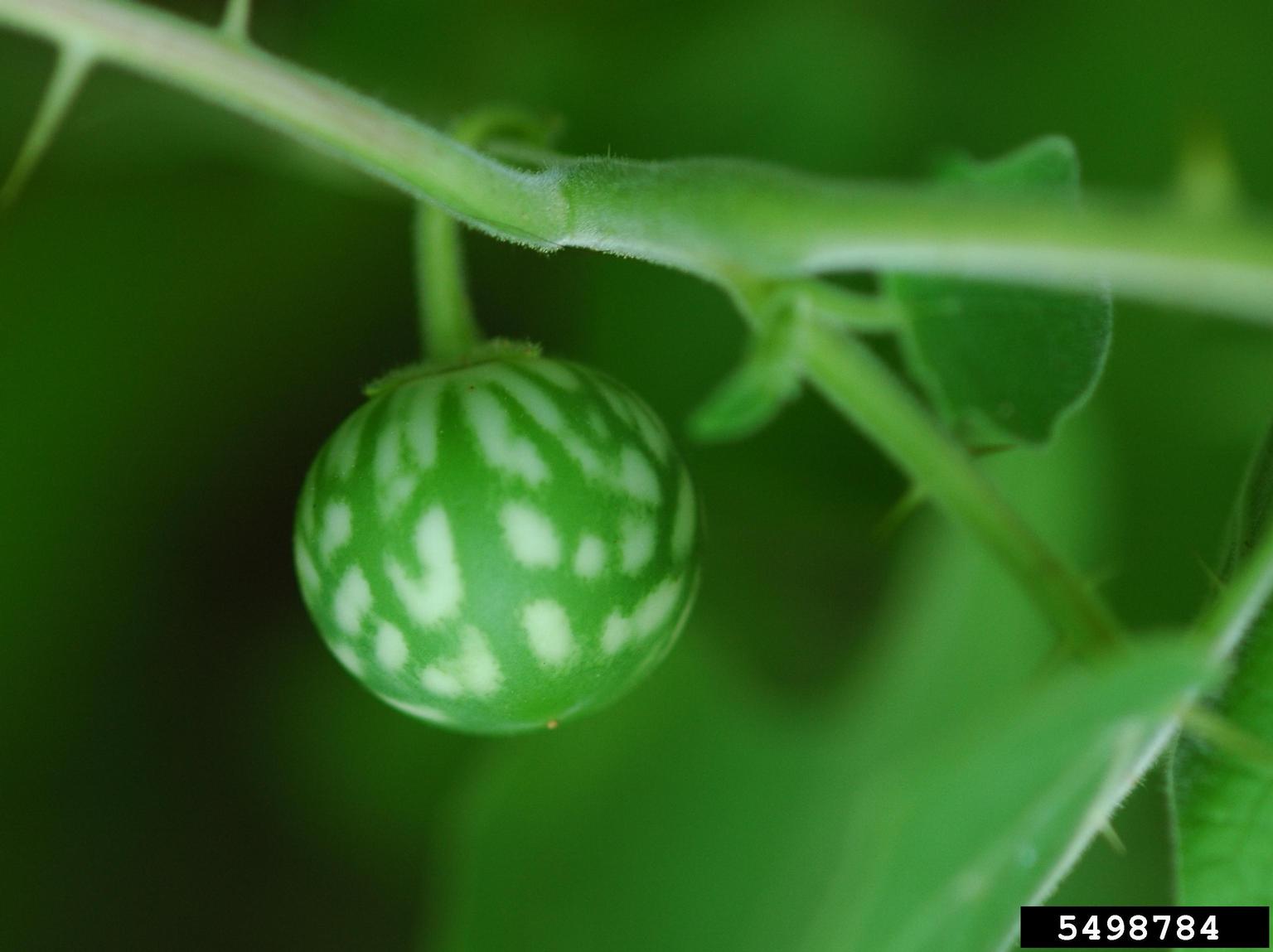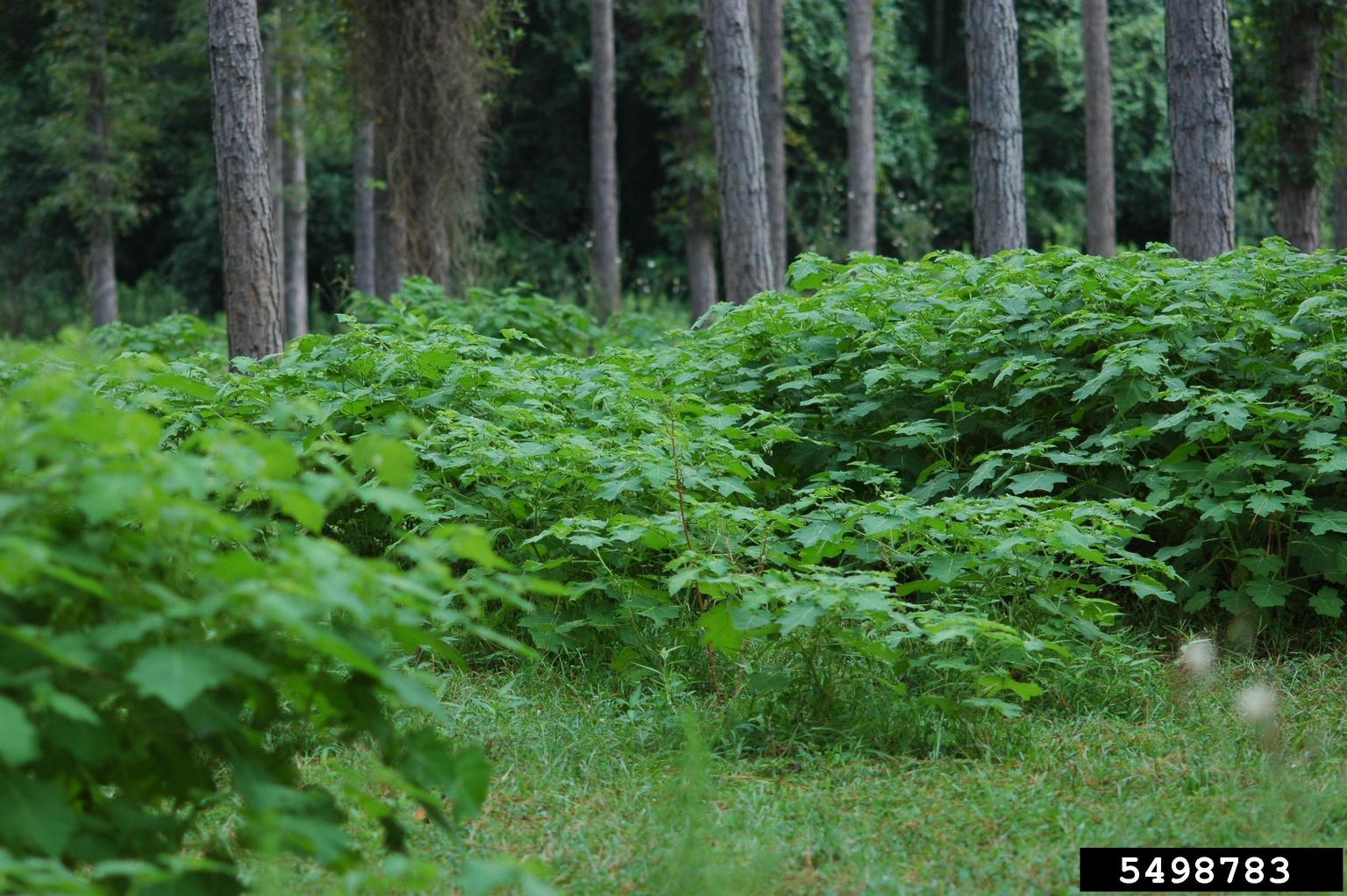
Early Detection Species of Virginia
Tropical Soda Apple (Solanum viarum)
What's the harm?
Tropical soda apple threatens agriculture and forest ecosystems. It invades natural forests and dominates the understory layer. The dense growth chokes out and prohibits growth of native plant species. Tropical soda apple competes with vegetable crops, as it serves as an alternate host for a variety of pathogens that are diseases of eggplant, peppers, potatoes, tomatoes, and others. Its foliage is unpalatable to livestock, but cattle will eat the mature fruit.
What is it?
Tropical soda apple is a thorny perennial shrub. It grows from 3-6 ft tall and produces golf-ball size fruits resembling tiny watermelons Caution – its fruit are poisonous to humans.

How did it get here?
Tropical soda apple was likely introduced accidentally by cattle imported from Brazil.
Where is it now?
Since its initial discovery in Florida in 1988, this species has rampantly spread across the American southeast and earned a place on several state noxious weed and noxious plant lists. In places where it is introduced, tropical soda apple is a common weed found in agricultural fields, pastures, and some natural areas including riparian habitat, oak hammocks, pine forests, and native grasslands.
How is it controlled?
For controlling very small populations and individual plants, hand pulling can be used. It is important to remove the entire plant and burn or bag plant material as this species readily regenerates from its roots. To control large populations, herbicides are the most effective method. Herbicide selection should be done by an expert taking site conditions and goals into consideration.
How do I report a sighting of tropical soda apple?
You can choose from several ways to report sightings of an invasive species here >>
Where can I learn more?
Read more about the biology, threats, and control of tropical soda apple here >>
Image Credits
University of Georgia, Bugwood.org
 Virginia Invasive Species
Virginia Invasive Species